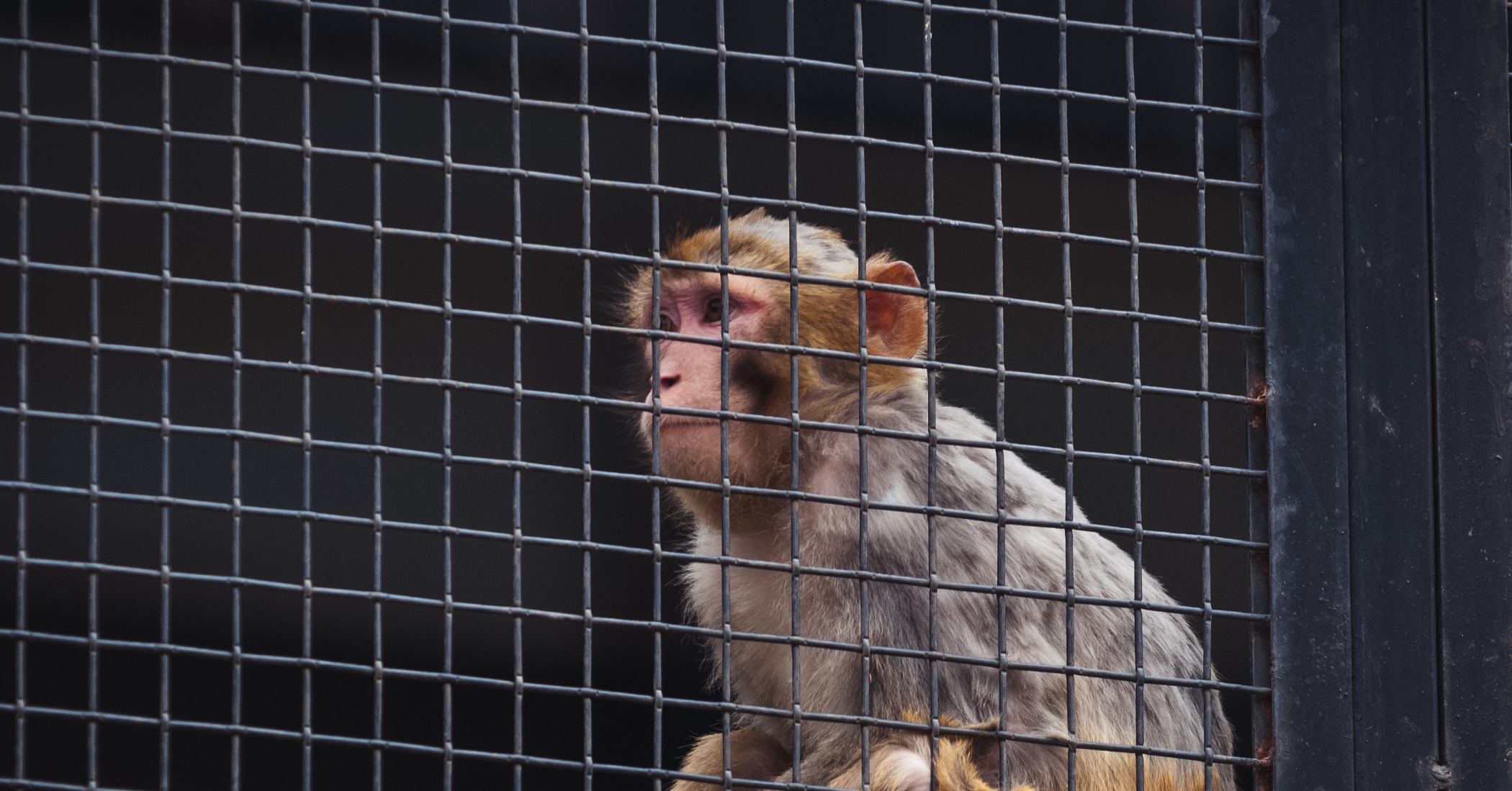
While the U.S. Fish and Wildlife Service continues to consider petitions to provide Endangered Species Act protection to macaque monkeys exploited en masse by the U.S. animal research industry, the industry’s self interest is on full display.
From seeking to increase the number of enslaved primates to endeavoring to undercut any protections for them, the animal research industry is showing its true colors.
We recently wrote about how the animal research front group NASEM is calling for more nonhuman primate research and how the animal research industry’s premiere lobbying group – the National Association for Biomedical Research – is attempting an end-run around the potential for increased legal protections for macaques.
And, now, National Geographic has reported the use of endangered primates for research on two drugs popular with Americans for causing weight loss: tests involving human drugs Ozempic and Wegovy are confirmed to have used macaques as “stand-ins” for humans.
Far from promoting interests in human health, the animal research industry is fighting to maintain one of its most profitable “commodities”.
The use of chimpanzees as human research “models” was discontinued by the U.S. National Institutes of Health (NIH) in 2015, because, as the NIH itself declared, continued use of chimpanzees in biomedical research was “unnecessary” for human health and not “supported by science”.
Yet, today, the animal research industry, including the NIH, would have you believe that macaques are critical to human research efforts – that they can and should serve as “models” of humans even though nonhuman primates more genetically similar to humans (i.e. chimpanzees) did not and should not.
The claim that macaque research is necessary for human health doesn’t add up . . . until you follow the money.
As NatGeo reports, the “business in long-tailed macaques is a lucrative one”, with shipments of stolen, commodified lives valued at more than $1 billion. And, the profit to be made from the trade in nonhuman primate research subjects extends beyond those currently enslaved in or en route to laboratories (who are priced out by the pound): NatGeo reports that, in August 2022, “a U.S. government official testified at a public meeting that its vendors said unborn monkeys are even being purchased as ‘futures.’”
Nonhuman animals, including macaques, need far more protection from humans than the Endangered Species Act can provide, but it’s a critical start.
As we wait for the U.S. Department of Fish & Wildlife to respond to the human decimation of two more species, we recognize that, as NatGeo articulates, “the monkey industry is at a public inflection point”. So, we must act now.
Thousands upon thousands of lives – present and future – hang in the balance.